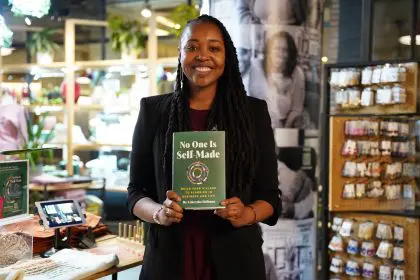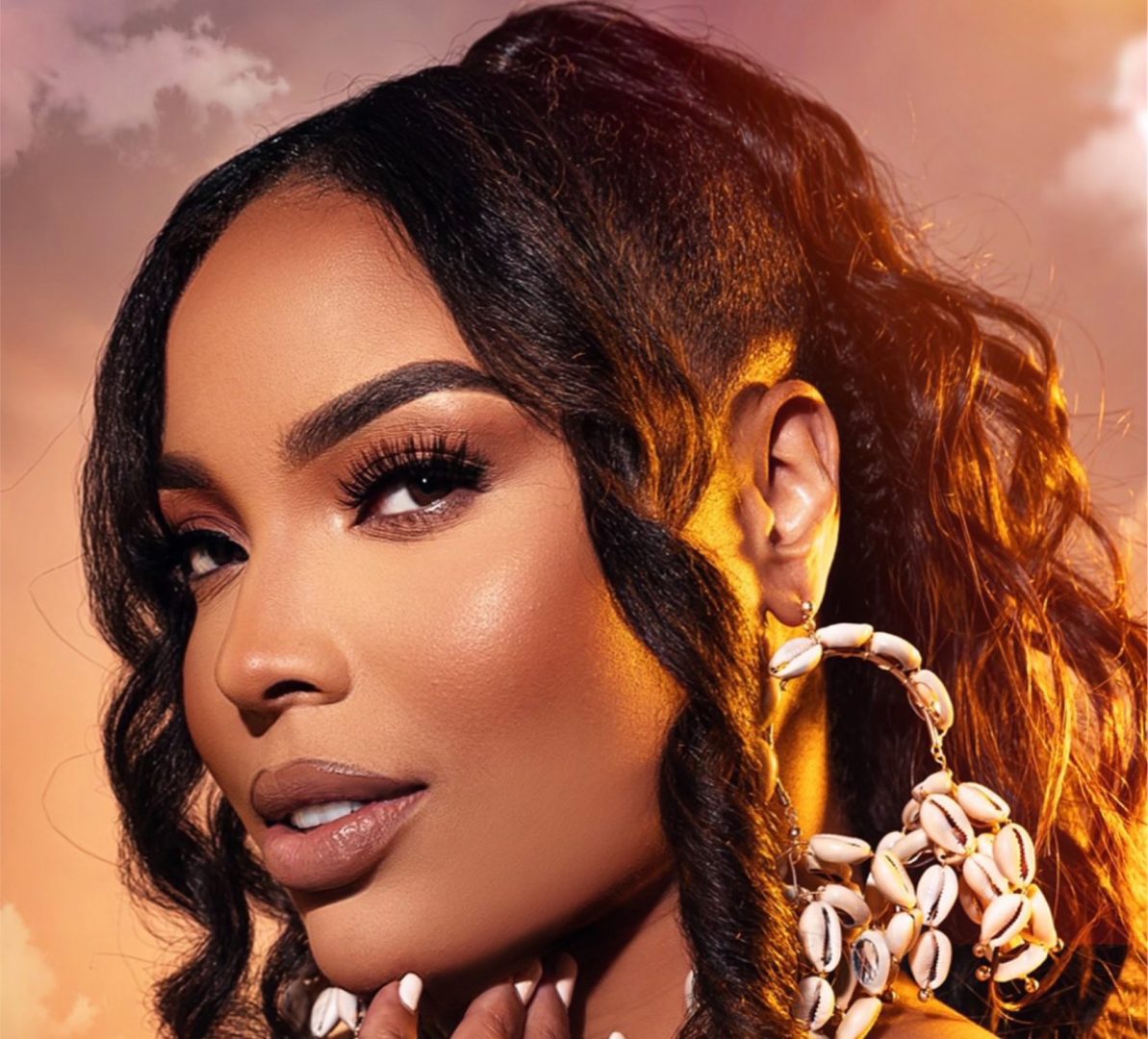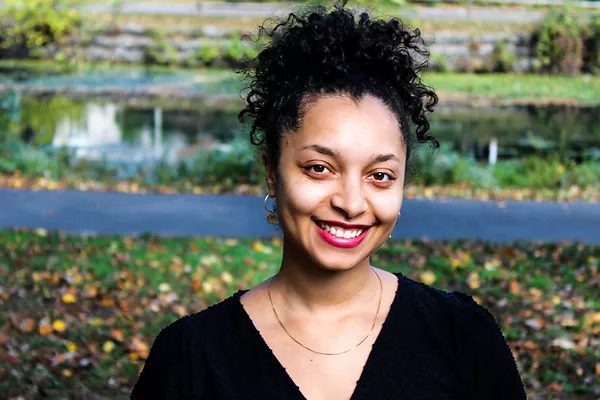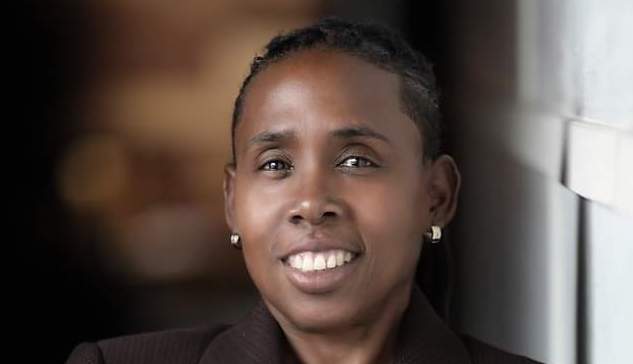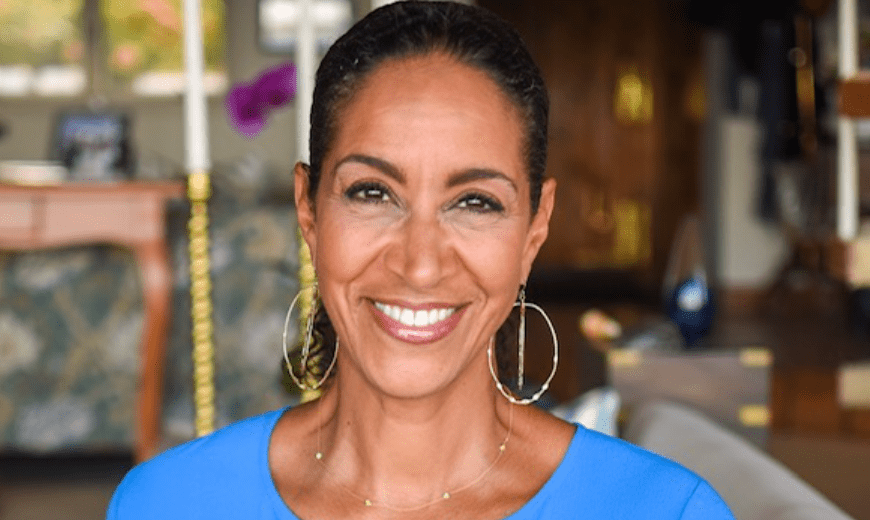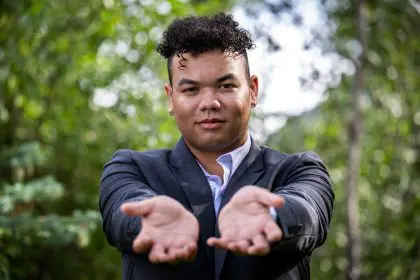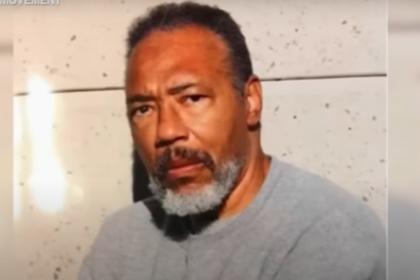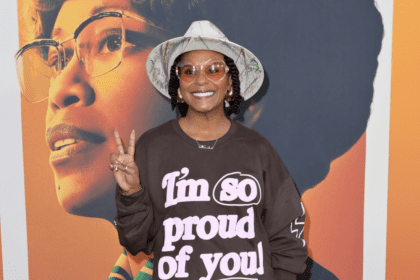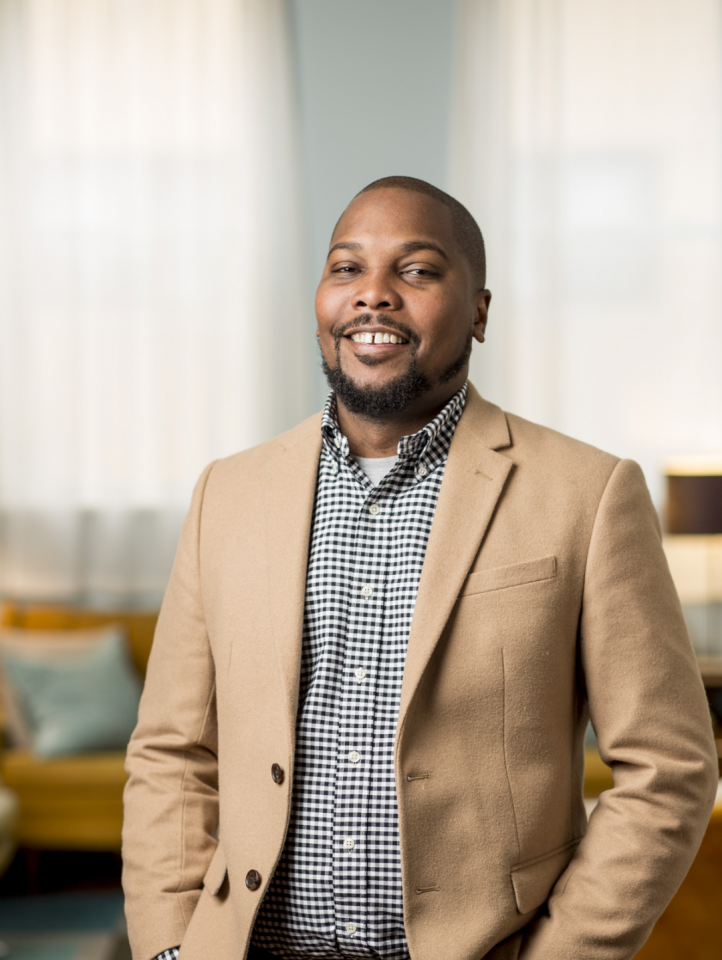
We Used To Have Money, Now We Have You is a bedtime story told from a dad’s perspective. Inspired by real-life events while living in a home with his wife and two young daughters, author Corey Richardson tells a humorous and kid-friendly tale about the joys of parenthood tempered by the realities of the sacrifices that parents make when raising children. Currently available for 99 cents on Apple’s iTunes store and on Amazon’s Kindle, it will be available for Android users shortly.
What inspired you to write your first book?
My kids. I have two daughters (ages six and one) and we’re really big on making sure we read to them every night. More importantly, we want to make sure that we have a culture of curiosity in our home. Since my oldest daughter sees me writing a lot and wants to know what I’m writing, I felt like it would be fun to create something for her from me.
Do you have a specific writing style?
Usually, my work isn’t for kids, so it tends to be a lot more cynical and biting. In this case, I tried to flip that cynicism on its head and take a statement that I just casually said to some friends one day about parenthood, and instead tell a story of the beautiful sacrifices of parenting.
What books have most impacted your life (or life as an author)?
Historically. Richard Wright, Ralph Ellison, and George Orwell are really the foundational canon of my thinking. In this case, since it’s a kid’s book, I tried to channel something like Ezra Jack Keats or Dr. Seuss on a really really bad day.
What books are you currently reading? Why this writer?
Personally. High Risers by Ben Austen is in my bag right now. From a children’s perspective, it’s a weird time in my household as we’re transitioning from classic kid’s literature into more pop-culture fueled stuff. It’s a lot less Fancy Nancy and Goodnight Moon and a lot more My Little Pony.
What new authors have piqued your interest?
Honestly. This one’s hard for me because I live with two little humans and, between my own writing and my other work, I haven’t done much exploration outside of the usual popular stuff. Although I know that there’s a Damon Young book coming and I really like his work.
If you had to do it all over again, would you change anything about your latest work?
I don’t think so. I wrote it for an audience of two and they both seem to like it as is.
Is there anything you find particularly challenging about writing or coming up with a concept for your book?
Actually, it took me three months to write the first draft of the book because I had to really work the situation/complication/solution framework into a personal narrative. I had to put it in a form that was informative to children. I needed to make sure it was humorous enough for adults. Then, I had to make it rhyme. It’s not something you slap together over a weekend.
What was the hardest part of completing this project?
Getting started. Again, I had a title and a concept. Other than that, it was hard to craft that into a story that would work on the levels it needs to work on. But, the great thing about children’s books is that sometimes you can let the illustrations do some of the heavy lifting.
What advice would you give other writers?
Always be writing something. Essays, social media updates, notes on your phone, recipes. Whatever it takes to keep the juices flowing, write it out.
Describe the process of getting published.
Well, we deliberately went the route of self-publishing an electronic book for a couple of reasons. First, it took a lot of pressure off getting it done and it allowed me to have the kind of fun with it that this story needs. Secondly, we weren’t sure if people would actually buy it. We figured we’d serve it up and see what we got. The response has been positive. Now, we’re in the process of exploring what other means of distribution we can leverage or if and when we’ll publish physical copies. In the meantime, we’re just having fun.
What were the literary, psychological or logistical challenges in bringing your work to life?
I’m a father of two daughters who never expected to be a father, let alone of two daughters. I’m a lucky man and that luck causes me a certain type of anxiety that I have to use humor to quell.
Everyone’s process of writing is different. Explain yours.
It usually starts with notes on my phone or a couple of sentences on a Word doc that I flesh out over time. I can’t just sit down and write a thing. I usually outline it or have some key points that the piece is built around. I use those to help keep my work focused.
What are five of your favorite books and why?
Native Son. When I read it as a kid I was experiencing something like anger and Wright really put a bow on how I was starting to see the world.
Freakonomics. I’m a nerd at heart and any book that pulls threads and gets to interesting “whys” will always get my attention.
The Prophet. It was my grandfather’s favorite book and I have his copy.
Leviathan. As a resident of Corporate America, it’s important to understand political theory, Hobbes’s approach has always seemed like it just makes sense to me.
Where The Wild Things Are. It’s the one kid’s book I don’t mind reading my daughter over and over. And, yes, I totally act out the parts.
Please provide three “good to know” facts about you. Be creative. Tell us about your first job or the inspiration behind your writing.
I’m a Trekkie. My wife hates it. I’ve got the DVR full of old episodes of “Star Trek: The Next Generation.” Yes, I’m all about TNG. That’s my show. One of my first jobs was working in the parking lot toll both at Water Country USA in Williamsburg, Virginia. That job sucked because after about 2:00 in the afternoon. Everyone who was gonna come to the park was at the park. I’d spend my time reading Iceberg Slim novels or whatever books were in the lost and found. It was the summer before I went to Morehouse and I worked with people who, for them, this was a full-time gig. I always think about winding up back in a parking lot if I don’t work hard and handle my business. I’m not necessarily afraid of prison. I am of working in that toll both again. I’m a cheeseburger enthusiast. My dream job is to be the cheeseburger critic for the New York Times. Just travel the world and eat cheeseburgers. I don’t think my wife or our family physician would approve of that dream, but we all gotta have something to aspire to, right?
What is the mission you set out to accomplish with your voice in this book?
I just wanted to have some fun with something I could enjoy with my family at the same time. One of my hobbies is barbecuing. The reason I like doing it so much is that it’s something that I enjoy that my family can directly benefit from. If I go out and shoot a great round of golf or get retweets or likes or shares, that’s nice for me and all, I guess. But, my wife and kids don’t get anything from that. This book is me getting a chance to do something I genuinely enjoy for the benefit of the people I love. I dig that.
Who are the authors you reread and why?
Recently, it’s definitely Ta’Nehisi Coates. I feel like he’s giving the intellectually palatable voice to the ethos that’s been fueling the Hip Hop generation for years. As far as kid’s books, most of the ones I reread are at the request of a pushy 6-year-old who wants me to read her Disney book, again and again.
A great book has what?
The authentic lens of the writer in the moment that they’re capturing. It’s like a photograph or any other artifact that encompasses a moment. It should have perspective and a reason for existing. You develop character and ideas by observation. Introspection. Taking things you know about yourself and others and turning the nobs on personalities to create ideas based on authentic experiences with the folks you identify with, but taking them somewhere else.
Where would you travel if you could to write your next book?
The next book definitely won’t be a children’s book. I feel like I need the vibe of a place that’s happening so I can observe and interact, but not too busy where I feel like I can’t turn it off. I used to live in Austin, Texas and I did a lot of good writing there because it was a place I felt like could opt in or opt out of when I felt like it. Maybe I’d go back there or New Orleans or someplace that has a personality. But yeah, when it’s time to write the book for grownups, I’ll need to be somewhere that the grownups are.
What is the gift of reading and why does it open up a new world?
Reading, and this is what we’re teaching our kids now, is the one skill that doesn’t just make you smarter, it actually makes you better. When you’re able to read, you’re able to experience other places, people, worlds, emotions, beliefs, and perspectives that you don’t get just being an observer or a passenger. Reading leads to writing, and writing to me is a way to become immortal. As long as someone knows your words, you’re still alive. Reading is the first step if you want to live forever.

